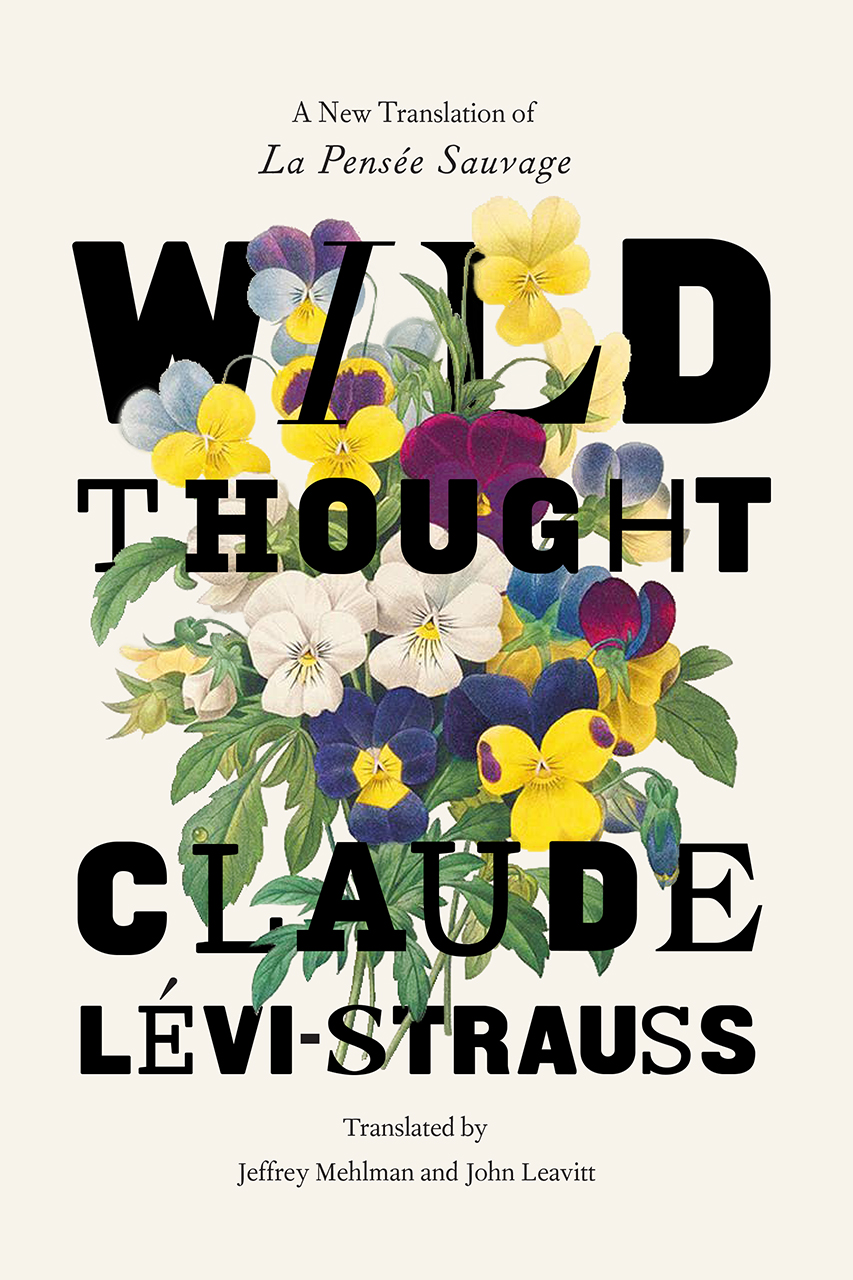Read an Excerpt from “Wild Thought”
To celebrate the release of our exciting new translation of Claude Lévi-Strauss’s iconic work, La Pensée sauvage, we’re sharing a sneak peek at the translators’ intro.
A fresh and accessible new translation, Wild Thought includes critical annotations for the contemporary reader and restores the accuracy and integrity of the book that changed the course of intellectual life in the twentieth century, making it an indispensable addition to any philosophical or anthropological library. Learn more & order here.
TRANSLATORS’ INTRODUCTION: John Leavitt
“Two Books in one year”

In 1962, the anthropologist Claude Levi- Strauss published two books, both growing out of his lectures at the College de France in 1960– 61. The first to appear, laid out in the first six lectures, was Le Totémisme aujourd’hui, literally “Totemism Today,” the forty- second volume in the “Mythes et religions” series published by the Presses Universitaires de France. It was a small book— it had to be, since the series was made up of introductory volumes with strict limits as to length. It had been requested by the series editor, Georges Dumezil, as a companion to such texts as Jean- Pierre Vernant’s Origines de la pensée grecque, Jean Bottero’s La Religion babylonienne, or Dumezil’s own Les Dieux des Indo- Européens, as well as volumes on the major contemporary world religions.
Le Totémisme aujourd’hui, which appeared in March, makes a compelling case that what earlier generations of anthropologists and historians of religion had labeled “totemism”—that is, the identification of human groups with natural beings, especially animals— and had often treated as a stage in the development of human religions and social organization was an illusion created by selecting certain forms from what was in fact a pan- human tendency to classify the differences that characterize one domain in terms of those that appear clearly in another. This is not a kind of primitive identification with animals; it is, rather, an expression of the way the human mind logically works, in this case classifying human groups by means of clear distinctions found in nonhuman realms.
Totemism, the lining- up of social categories in terms of natural categories, did not reveal a primitive inability to distinguish, for instance, people from animals; on the contrary, it showed that people all over the world were perfectly capable of using human intellectual powers to delineate and organize their lived worlds, social and natural.
The book is clear and didactic. In 1963 there appeared an English translation (entitled Totemism) by the British anthropologist Rodney Needham, a translation that has generally been accepted as an excellent rendition of the original.
The story is not nearly so straightforward with the second book of 1962, La Pensée sauvage. In the last five of his College de France lectures, Levi- Strauss had opened up much wider philosophical and ethnological problems than could be encompassed in the book as he and Dumezil had imagined it. Through an intense correspondence, it was decided that Le Totémisme aujourd’hui would be primarily historical and comparative, with a clear enunciation of Levi- Strauss’s own position. This would fit into the 130- odd pages to which the volumes in the series were restricted. Levi- Strauss would then be free to develop the wider implications of his critique for human thinking and classification systems in a longer work— initially called “Beyond Totemism”— which is what became La Pensée sauvage, published in May 1962 by his usual publisher, Plon, which had already brought out his autobiographical essay Tristes Tropiques and his pathbreaking collection Anthropologie structurale. (Readers may find it useful to refer to the summary of the year’s lectures in Claude Levi- Strauss, Anthropology and Myth: Lectures, 1951– 1982, translated by Roy Willis [Oxford: Blackwell, 1987], 25– 36.)
While Le Totémisme aujourd’hui was read and appreciated by both scholars and students, it was La Pensée sauvage that had a real impact on French, and soon on international, intellectual life. A book that ranges over philosophies, historical periods, and human societies, directly engaging the major philosophical options of its time and place, it challenged the prevailing existentialisms and individualisms and all notions of a general superiority of modern Western cultures over others. All human beings, throughout the
world and through history, are intellectual creatures, it argues, naturally given to classifying and organizing the data to which they have access. The specificity of modern scientific thought is to deal directly with abstractions, while mythic thought, thinking “in the wild” (sauvage), manipulates abstractions through arrangement and rearrangements of perceptible qualities, a play of emblems. But both use the same kinds of processes, and in fact la pensée sauvage typifies modern urbanized Western people when they are not being actively scientific— which is to say, most of the time— as much as it does dwellers in an African forest or on a Pacific island.
Aimed at philosophers at least as much as the general reader, alternating between striking sudden aphorisms and long passages of intense analysis, the style of La Pensée sauvage is as different as it can be from that of Le Totémisme aujourd’hui. It is a demanding book to read, and a nightmare to translate.
John Leavitt is a translator and professeur titulaire of anthropology at the University of Montreal. He is the author of Linguistic Relativities and the editor of Poetry and Prophecy.
Learn more about Wild Thought & order here.